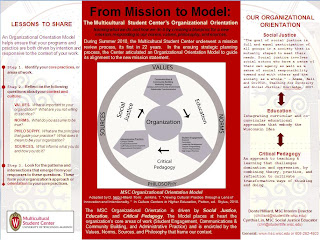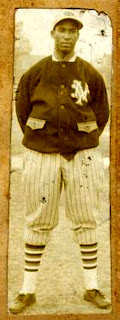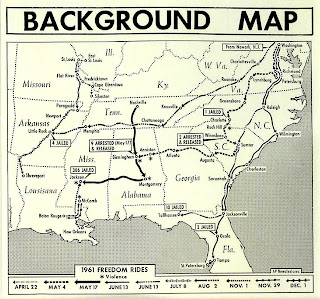MADISON - Candace and Charles McDowell have been named as the inaugural recipients of an award named in their honor - the McDowell Alumni Achievement Award.
The University of Wisconsin-Madison Multicultural Student Center celebrated graduation by honoring more than 100 students and presenting the McDowells with the award.
"The McDowells have provided us dynamic examples of leadership, service, and commitment to excellence and community that will serve as a blueprint for evaluating future recipients," says MSC interim director Donte Hilliard.
Candace McDowell, after 10 years of working in admissions, became the founding director of the Multicultural Student Center and led the organization for its first 22 years of existence. Charles McDowell served as president of the Wisconsin Alumni Association from 2003-04.
During her tenure as director, the MSC has served approximately 500,000 students and helped to establish its pivotal campus role as a social justice education center and gathering place.
Both are UW-Madison graduates who grew up in Milwaukee and attended Rufus King High School.
 | Both have been board members of UW-Madison's African American Alumni Association. Charles McDowell served as the group's president during the 1990s. Candace McDowell is founding director of the MSC, which opened its doors in the fall of 1988. She retired in 2010. Charles McDowell currently serves as executive director of human resources for Madison College. |
"This year, the MSC staff decided that in addition to student, and staff recognition, that it was equally important that we recognize the contributions, and achievements of alumni; the ones who came before; the ancestors and elders, upon whose shoulders we stand; the ones who paved the way and blazed the trails that we tread upon," Hilliard says.
Now a decade-old tradition, the MSC also honored more than 50 spring graduates representing programs and departments across the campus.
"There is an added element of successfully completing a degree at UW-Madison for multicultural students," Hilliard said. "We are saluting the supporting relationships and friendships formed here in the center and most importantly these students contribution to making higher education at this university and society at large a more inclusive place."
Organizational Awards in Multicultural Leadership:
Emerging Leader Award: Jasmine Savoy for her work with the Multicultural Council, ASM, and the Posse Scholars.
Established Leader Award: Steve Pereira for his work with Lambda Theta Phi, Intercultural Dialogues and in the community.
Behind the Scenes Award: Alida Cardos Whaley for her work with MEChA and the Housing Diversity Squad.
Outstanding Faculty/Staff Award: Ruby Paredes for her long-time campus diversity work.
Outstanding New Program: Lambda Theta Phi Latin Fraternity, Inc., for their Latino Leaders in Education.
Outstanding Established Program: La Mujer Latina Conference.
Organization Demonstrating Excellence in Social Justice: MEChA, Movimiento Estudiantil Chicano de Aztlan!
Outstanding Student Organization Award: Filipino American Student Organization (FASO)
Wisconsin Experience Award: UW-Madison junior Saengthong Douangdara.
Institute for Social Justice and Transformative Leadership Award: Sheltreese McCoy.
MSC Meyerhoff Undergraduate Excellence Award: Zina Knox.
Individual Multicultural Leadership Award winners and their majors included:
Irfaan Abid, biology; Nneka Adaeze Akubeze, sociology; Jair Alvarez, international studies; Cara Aronson, consumer science-consumer affairs; Omar Arreola, sociology and Chican@/Latin@ studies certificate, European studies certificate, leadership certificate; Alexis Beecham, rehabilitation psychology; Kasandra Bellamy, social welfare; Alida Cardos Whaley, Latin American, Caribbean, and Iberian studies; Amanda Cheung, fine arts; Kimberly Cho, fine art; Sabrina Collins, political science; Salman Dar, neurobiology; Kelsey Van Ert, sociology; Nancy Galvez, social work and certificate in gender-women's studies;
Marquez Guzman, economics and psychology; Brandon Johnson, community and nonprofit leadership; Martenzie Johnson, journalism and mass communication; Zina Knox, multicultural education; Ashley Lee, community and environmental sociology, environmental studies; Mintuyen Mai, sociology, languages and cultures of Asia, Southeast Asian and certificate in Asian- American studies; Sheltreese McCoy, graduate studies in educational leadership policy analysis in higher education; Raymond McCurty-Smith, marketing, management and human resources; Erica McKinney, social welfare and sociology; Johnice Miller, biology; Shanelia Milton, English;
Joylynne Moore, rehabilitation psychology; Ayobami Olugbemiga, political science; Camea Osborn, English; Allisya Otto, social work & Spanish; Jessica Pan, international studies and French; Trisha Pedone, biology; Steve Pereira, political science; Sabrina Pinnix, personal finance; Molly Rivera, journalism and mass communication; Gayle Smaller, African American studies and theater; Sofia Snow, social work; Tiffany Sommerville, rehabilitation psychology; Tosha Songolo, international studies and African studies certificate; LaVaisha Terry, social welfare; Jasmine Timmons, women's studies;
Kimanh Truong, English literature and certificate in teaching English as a second language; Ashley Umberger, sociology and African studies certificate; Karla Chavez Vargas, political science, Spanish and LACIS; Ashlin Ware, social welfare; Jerrod Walker, legal studies and English honors; Ben Young, Spanish; Hiba Zakai, education leadership policy analysis. ###
Valeria Davis, 608-890-3079, vadavis2@wisc.edu University Communications News releases FOR IMMEDIATE RELEASE 5/13/11 Contact: Donte Hilliard, 608-265-2513, dhilliard@studentlife.wisc.edu

































